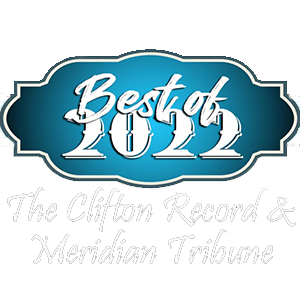Medicare and Medicaid can best be described as government-run, social insurance programs put in place by President Lyndon B. Johnson, enabling older and low-income Americans to receive necessary healthcare services. While the two programs share commonalities, they serve completely different purposes.
Prior to enrolling in higher education and beginning a career in healthcare, I certainly didn’t know the difference between Medicare and Medicaid – I don’t expect you to know the difference either. At Lutheran Sunset Ministries, we’re here to answer those questions for you.
In the field of aging services, we work extensively with both programs. For all intended purposes, Medicare and Medicaid will only be discussed here as they relate to the aging population. The programs do, however, span far beyond the golden years.
Medicare is a federal insurance program that primarily serves people over age 65, regardless of income. Medical bills are paid from trust funds that beneficiaries have paid into. You have likely noticed that you pay a good little chunk of your income to the program each year. The program, operated by the Centers for Medicare and Medicaid Services, is essentially the same nationwide. Medicare is not free. While beneficiaries pay part of costs through deductibles for hospital and rehab stays, other small monthly premiums are required for non-hospital coverage.
Medicare can be broken down into four programs: Medicare Part A, B, C and D. Medicare Part A covers hospital/rehab stays, Part B covers medical insurance, Part C is the health maintenance organization (HMO/PPO), and Part D covers prescriptions. Some of these plans require the Medicare recipient to pay additional premiums, as they are optional.
Medicare Part A, also known as hospital/rehab insurance, generally covers care given in a skilled nursing facility (SNF), such as Sunset Home, if it’s medically necessary. In other words, if healthcare supplies or services are needed to diagnose or treat an illness, injury, condition, disease or its symptom, and it meets accepted standards of medicine, the care should be covered by Medicare in a SNF. A patient must be admitted in a hospital for three midnights in order to qualify for a Medicare SNF stay.
The most common Medicare Part A scenario we see in Sunset Home usually involves an individual who has fallen at home and fractured a limb – this individual may not currently be able to function independently and needs a few weeks of physical and occupational therapy before safely returning to their residence. I might add, our team at Sunset Home can get you back on your feet and in your home again before you even know what happened. Please note, the majority of individuals in Sunset Home need custodial care, like help with bathing or dressing. Medicare does not cover custodial care if that’s the only care you need.
Medicaid is a state operated assistance program. It serves low-income people of every age, and will pay for custodial care in a community such as Sunset Home for those who qualify medically and financially. Medicaid eligibility is based on a combination of a person’s current healthcare needs and their income. Generally, those who receive Medicaid assistance in Sunset Home have a medical condition such as very poor vision or the inability to self-medicate safely in the home setting. They also must have very limited resources in order to qualify for Medicaid. Patients usually pay no part of costs for covered medical expenses under Medicaid. Medical expenses are paid from state, federal and local tax funds. The Medicaid program varies from state to state, and must meet federal guidelines.
Please let us know if we can ever answer a question for you regarding the Medicare or Medicaid Programs. Please visit www.lutheransunset.org/news for additional articles. Lutheran Sunset Ministries is your resource of all topics regarding successful aging.
This article was written by Lance Allen, Sunset Home administrator. The Sunset Home is a program of Lutheran Sunset Ministries in Clifton, Texas.







Very informative ~ thanks for sharing!